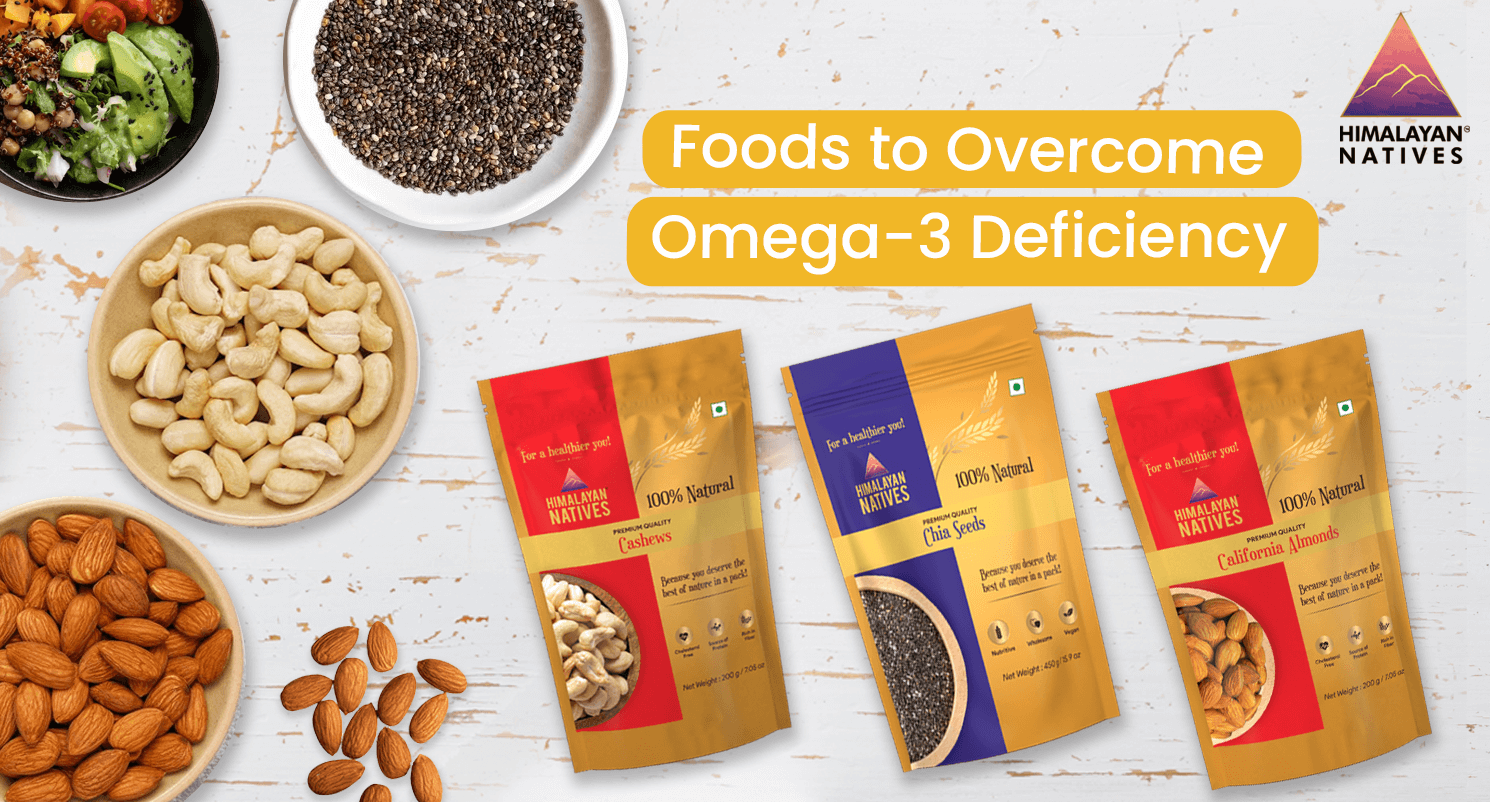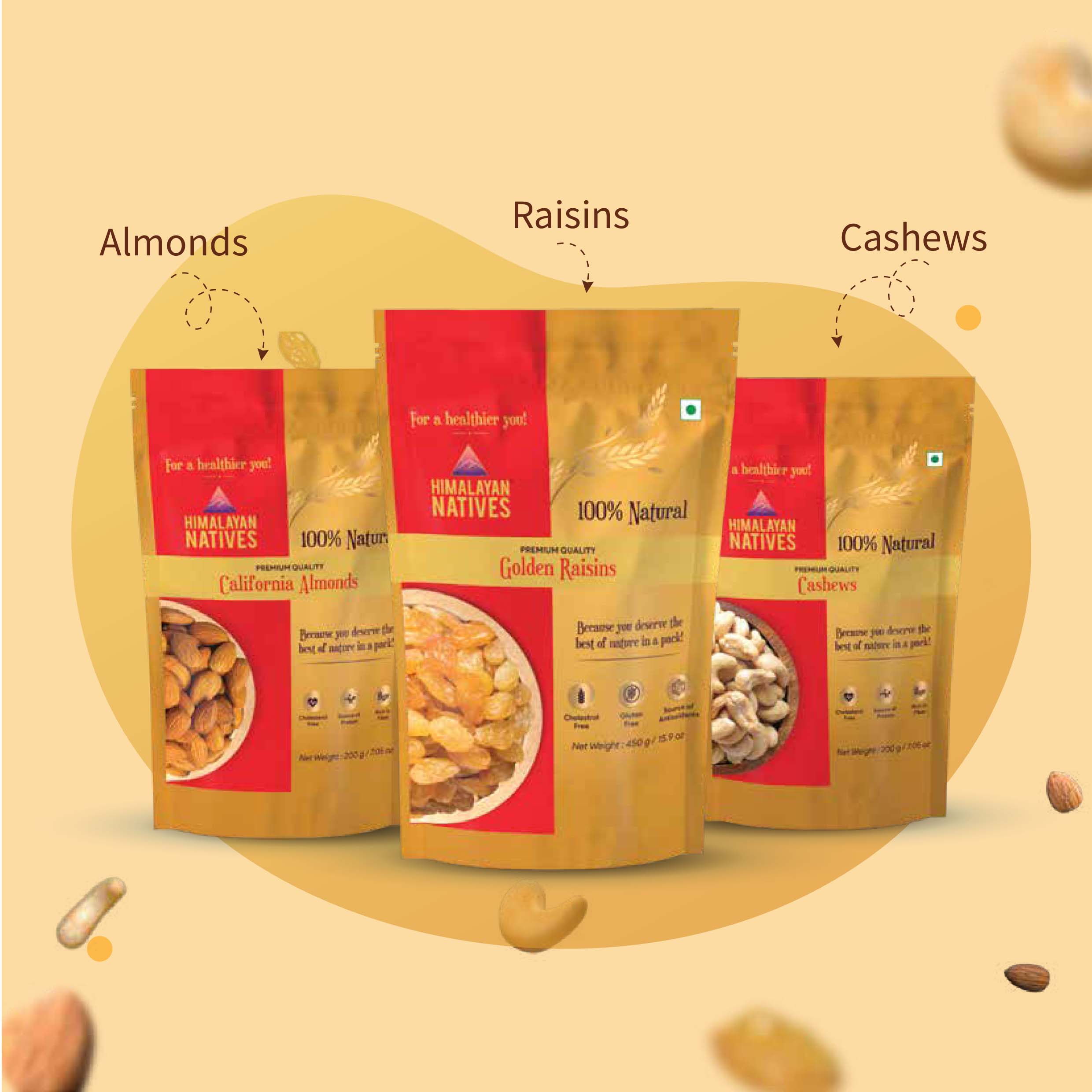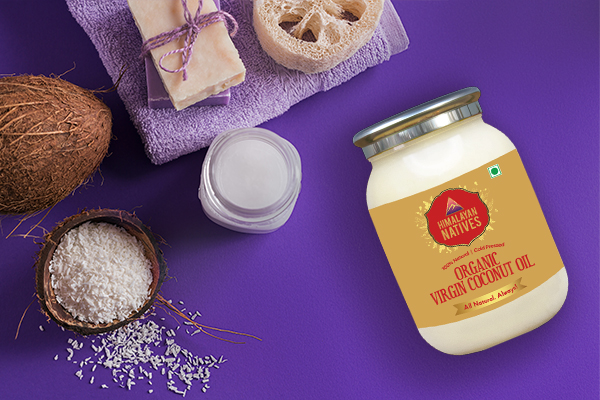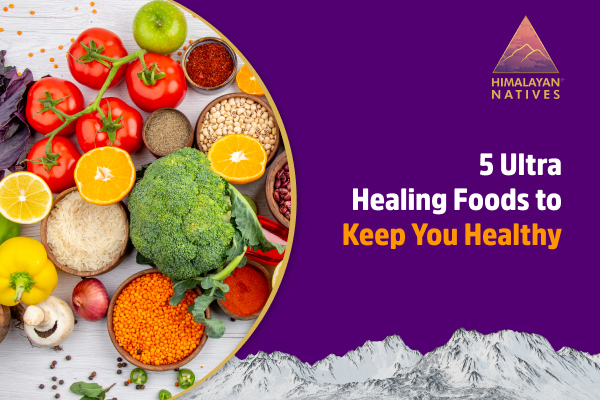
Omega-3 fatty acids are essential for our overall health, playing a crucial role in the functioning of the brain, and heart health, and reducing inflammation.
However, many people struggle to get enough omega-3s in their diet, leading to a deficiency. While there are several supplements available in the market, it's always best to get nutrients from natural food sources.
In this blog, we will explore the top foods to overcome omega-3 deficiency, along with tips for incorporating them into your diet.
Whether you're looking to buy the best seeds or discover nutritional dietary supplements, this article provides all the information you need to ensure you're getting enough omega-3s. So, let's dive in and start nourishing our bodies with these essential fats!
Understanding Omega-3 deficiency and its impact on health
Omega-3 deficiency can have significant impacts on our health. These essential fats are critical for maintaining brain function and reducing the risk of heart disease.
Without enough omega-3 in our diet, we may experience negative effects such as cognitive decline, fatigue, mood swings, and an increased risk of chronic diseases.

A common symptom of omega-3 deficiency is dry and flaky skin. This occurs because omega-3 plays a crucial role in maintaining the health of our skin cells and keeping them moisturized.
Additionally, inadequate intake of omega-3 can lead to joint pain and stiffness, as these fats have anti-inflammatory properties that help reduce inflammation in the body.
Understanding the effects of omega-3 deficiency on our health can motivate us to prioritize these essential fats in our diets through recommended foods in the next section, ultimately improving our overall well-being.
Incorporating fatty fish into your diet
Incorporating fatty fish into your diet is one of the best ways to overcome omega-3 deficiency.
Fatty fish such as salmon, mackerel, trout, sardines, and tuna are rich sources of omega-3 fatty acids, specifically EPA and DHA.
These types of fish have been shown to have numerous health benefits, including reducing inflammation, improving heart health, and promoting brain function.

To ensure you are getting enough omega-3s from fatty fish, it is recommended to consume them at least twice a week. You can try grilling, baking, or steaming the fish to retain its nutrients. Pair it with a side of vegetables, some almonds, and a whole grain for a nutritious and well-rounded meal.
By incorporating fatty fish into your diet or taking fish oil supplements, you can effectively overcome omega-3 deficiency and improve your overall health.
Adding nuts to increase omega-3 intake
Another great way to overcome omega-3 deficiency is by adding nuts to your diet. While they may not contain as much omega-3 as fatty fish, they are still a good source of this essential fatty acid.
Walnuts, raisins, almonds, and cashews are particularly high in omega-3 fatty acids. Including a handful of almonds in your daily snack or sprinkling them over your oatmeal or smoothies can help boost your omega-3 intake.
Additionally, incorporating these nuts into your diet provides other health benefits, such as improving brain function, reducing inflammation, and supporting heart health.
By including a variety of nuts in your meals and snacks, you can further enhance your omega-3 intake and support your overall well-being.
Exploring plant-based sources of omega-3, such as chia seeds and flaxseed
While fish is often lauded as the primary source of omega-3 fatty acids, there are plenty of plant-based options for those who prefer not to consume seafood. Chia Seeds and Flax Seeds are two excellent examples.

Chia seeds, known for their high fiber and antioxidant content, are also packed with omega-3 fats. They can easily be incorporated into your diet by adding them to yogurt, and smoothies, or even using them as an egg replacement in baking.
Flaxseed, on the other hand, is a great source of omega-3 fatty acids and can be used as a salad dressing or drizzled over cooked vegetables.
By exploring these plant-based sources of omega-3, you can ensure that you are meeting your nutritional needs and maintaining a well-rounded diet. Whether you choose to include fish or prefer plant-based options, it's important to prioritize omega-3 intake for optimal health.
Consulting a healthcare professional for personalized guidance

Consulting a healthcare professional is essential when it comes to addressing any nutritional deficiencies, including omega-3 deficiency. They can provide personalized guidance based on your specific health needs and goals.
A healthcare professional, such as a doctor or a registered dietitian, can evaluate your current diet, determine the severity of your deficiency, and recommend appropriate dietary changes or supplementation.
NOTE: Everyone's nutritional needs are unique, and what works for one person may not work for another. This is why seeking professional advice is crucial.
In Conclusion,
Addressing omega-3 deficiency requires the guidance of a healthcare professional. They play a crucial role in evaluating your specific needs and recommending appropriate dietary changes or supplementation.
Self-diagnosing and self-treating may not be effective or safe, considering the complexity of nutrition.
By reading a blog from Himalayan Natives, you can ensure that you are on the right track to overcome your omega-3 deficiency and improve your overall well-being.
They can provide you with a comprehensive plan that includes not only omega-3-rich foods but also other essential nutrients and lifestyle modifications.
Remember, seeking expert advice is crucial because everyone's nutritional needs are unique. So, take that important step and reach out to a healthcare professional today to overcome your omega-3 deficiency and optimize your health.
You can also read our blog for a better lifestyle: 7 Ways to Adopt a Healthy Lifestyle
Frequently Asked Questions (FAQs):
1. Can children and pregnant women benefit from increasing their omega-3 intake?
Answer: Yes, omega-3s are crucial for children's brain development and can be beneficial during pregnancy. However, pregnant women should consult their healthcare provider before making significant dietary changes.
2. How long does it take to see the effects of increased omega-3 intake on health and well-being?
Answer: The time it takes to see noticeable improvements can vary from person to person, but it's generally recommended to give it a few weeks to a few months.
3. Are there any potential interactions between omega-3-rich foods and medications?
Answer: Some medications, such as blood thinners, can interact with high-dose omega-3 supplements. Discuss this with your healthcare provider.
4. Are there any risks associated with consuming too much omega-3?
Answer: Excessive omega-3 intake, particularly through supplements, can lead to side effects like bleeding problems. It's essential to consult a healthcare provider for personalized advice.
That's a wrap for this blog. If you found our content enjoyable, you might also appreciate our collection of quick and helpful insights on nutritious foods and a balanced lifestyle. Feel free to visit our Facebook and Instagram pages, hit that follow button, and we promise you won't be disappointed!
 HELPFUL0 people found it helpful
HELPFUL0 people found it helpful
Related Blogs
Subscribe to Our Blogs
and never miss on the latest update!


















